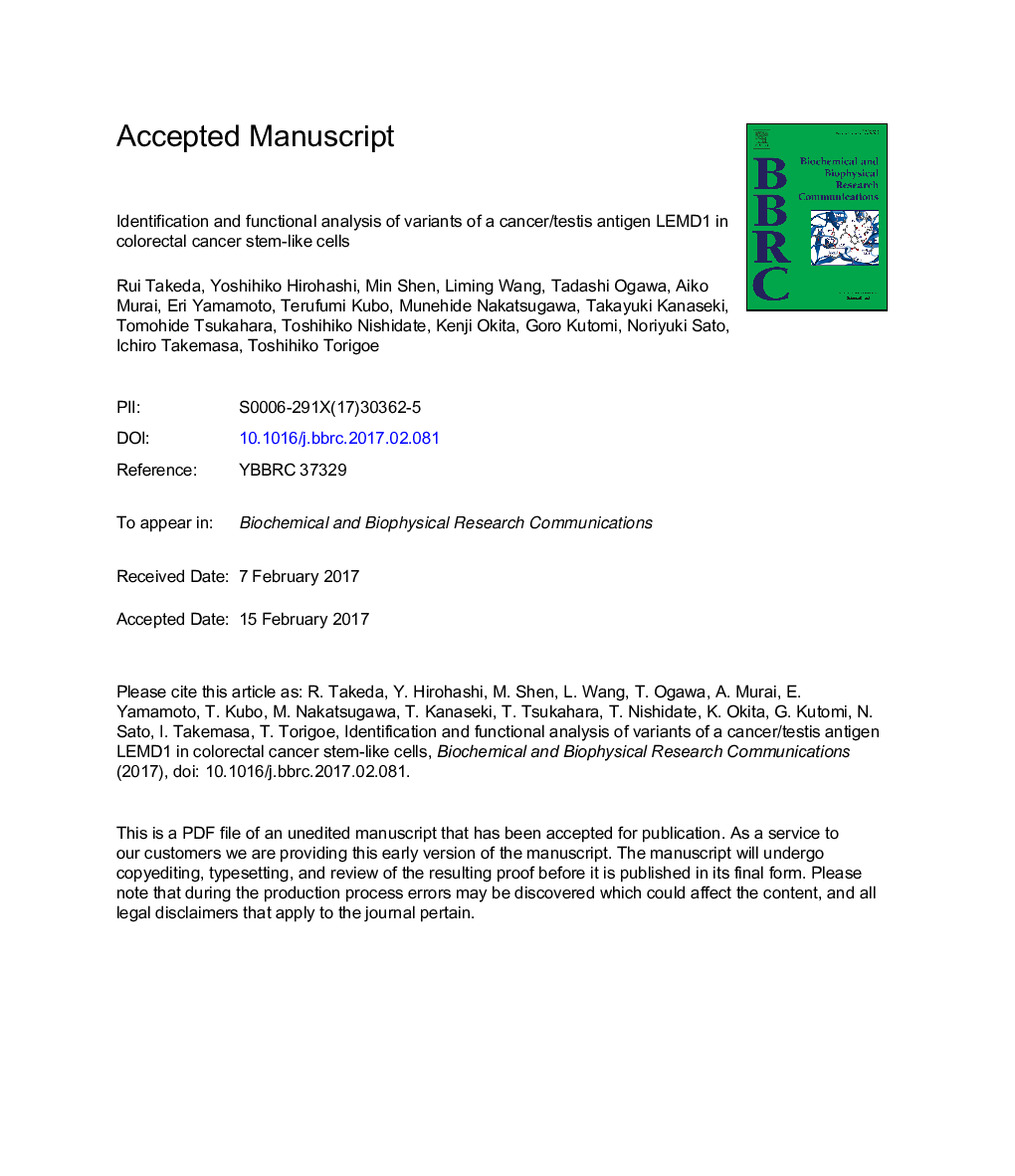| Article ID | Journal | Published Year | Pages | File Type |
|---|---|---|---|---|
| 5506141 | Biochemical and Biophysical Research Communications | 2017 | 29 Pages |
Abstract
Colorectal cancer (CRC) is one of the most common malignancy, and the prognosis is not still satisfactory due to treatment resistance, recurrence and distant metastasis. Cancer stem cells (CSCs)/cancer-initiating cells (CICs) is endowed with higher tumor-initiating ability, self-renewal ability and differentiation ability, and CSCs/CICs are resistant to treatments. Thus, CSCs/CICs are thought to be responsible for recurrence and distant metastasis, and eradication of CSCs/CICs is essential to cure CRCs. However, the molecular mechanisms of CSCs/CICs are remain unknown, and we aimed to elucidate molecular aspects of CR-CSCs/CICs in this study. We screened the transcriptome data of primary human CR-CSCs/CICs that we previously established, and found that LEM domain containing 1 (LEMD1) is preferentially expressed in CR-CSCs/CICs. LEMD1 belongs to cancer-testis (CT) antigen, and has five transcript variants (variant 1 [V1] - variant 5 [V5]). We found that LEMD1 V1, V2 and V3 is expressed in testis and CR-CSCs/CICs, whereas LEMD1 V4 and V5 is ubiquitously expressed. LEMD1 gene knockdown experiments using siRNAs and gene overexpression experiments revealed that LEMD1 has a role in the maintenance of CR-CSCs/CICs. These observations indicate that CR-CSC/CIC-specific LEMD1 variants are reasonable target of CR-CSC/CIC-targeted therapy.
Related Topics
Life Sciences
Biochemistry, Genetics and Molecular Biology
Biochemistry
Authors
Rui Takeda, Yoshihiko Hirohashi, Min Shen, Liming Wang, Tadashi Ogawa, Aiko Murai, Eri Yamamoto, Terufumi Kubo, Munehide Nakatsugawa, Takayuki Kanaseki, Tomohide Tsukahara, Toshihiko Nishidate, Kenji Okita, Goro Kutomi, Noriyuki Sato, Ichiro Takemasa,
